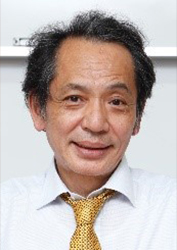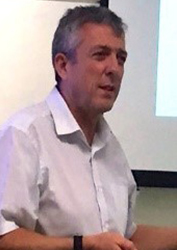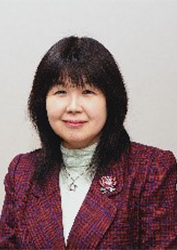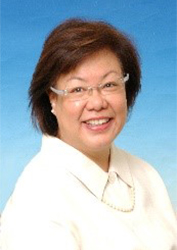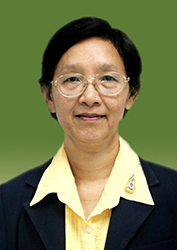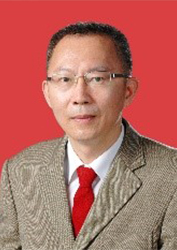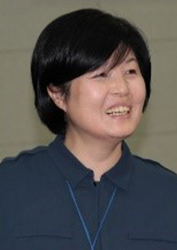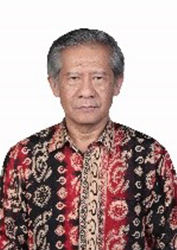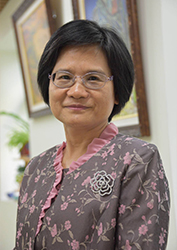International Conference
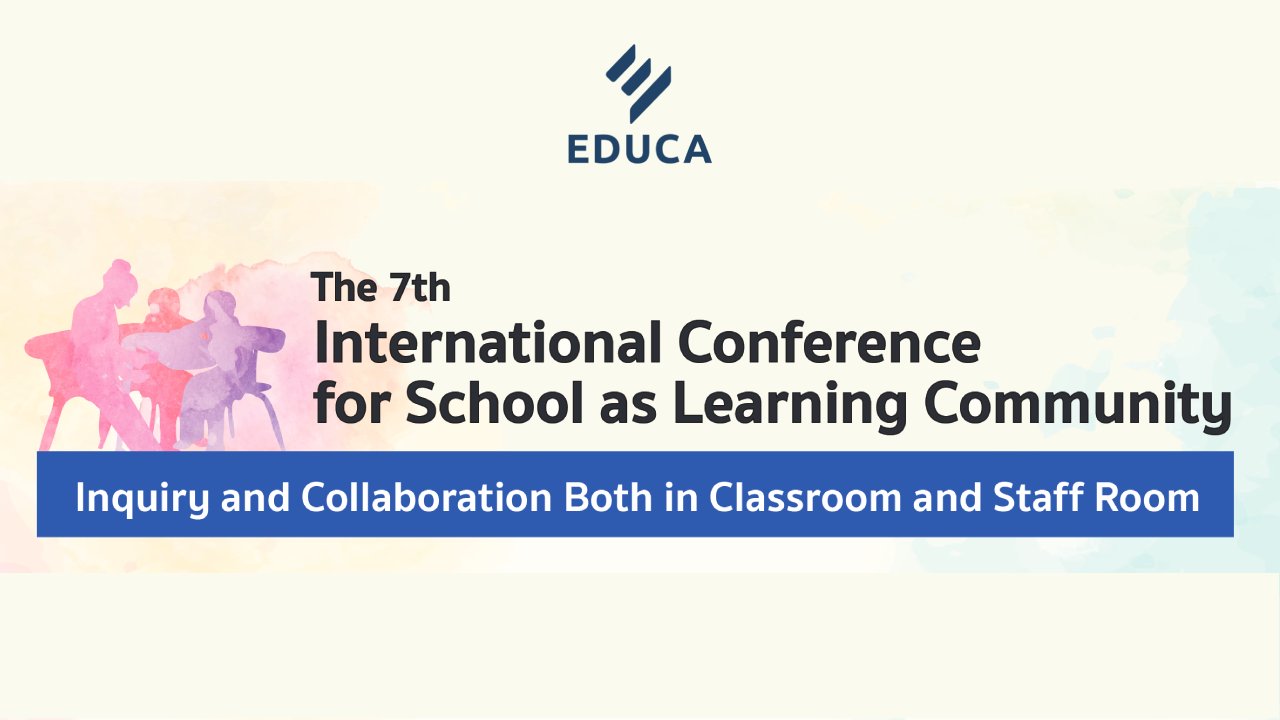
International Conference for School as Learning Community
6 years ago 15039Theme International Conference: Inquiry and Collaboration both in Classroom and Staffroom
The theme of the conference is “Inquiry and Collaboration Both in Classroom and Staff Room”. As you know school as learning community has drastically impacted on school reform in all of the Asian countries during the past two decades. We, people who are concerned about the human right of education for all, are keen to know what this means to the democratization of schooling. It is also our firm belief that practical research which integrates theory and practice in the reflective practice has been elaborated among the colleagues of this movement.In addition, SLC has pursued both of quality and equality in learning. We proclaim a robust cannon that the both are inter-supportive and inter-dependent each other through enhanced inquiry and collaboration based on listening pedagogy. Inquiry is promoted with deliberation of reflection, which is facilitated by a collaboration of diversity. Every country in the process of such reforms can learn valuable lessons from the experiences, knowledge, and insights gained from others. In this conference, we invited the leading professors from The United Kingdom, China, Korea, Taiwan (ROC), Singapore, Indonesia, Vietnam, Thailand, Mexico and Japan, as keynote and plenary speakers. The 7th International Conference of School as Learning Community 2019 aims to provide a platform for education researchers and policy-makers throughout the Asian countries.
Every country in the process of such reforms can learn valuable lessons from the experiences, knowledge, and insights gained from others. In this conference, we invited the leading professors from The United Kingdom, China, Korea, Taiwan (ROC), Singapore, Indonesia, Vietnam, Thailand, Mexico and Japan, as keynote and plenary speakers. The 7th International Conference of School as Learning Community 2019 aims to provide a platform for education researchers and policy-makers throughout the Asian countries.
TIME |
AGENDA |
|---|---|
09.00 – 09.45 |
พิธีเปิด Opening Address |
Keynote Speech 1 "Inquiry and Collaboration in School as Learning Community –At Both of Classrooms and Staffroom"Synopsis/AbstractSchool as Learning Community (SLC) is not a simple recipe or technique, but an integrated set of vision, philosophies and activity systems of learning together among students, teachers and parents. SLC has progressed, especially in terms of “learning as inquiry through collaboration” during past five years. Many cases regard learning community as “inquiry community”. In this context, inquiry and collaboration are intensively related. Inquiry necessarily requires collaboration, because, thinking, which fundamentally dialogues with oneself, can be executed alone, while inquiry, that is integration and elaboration of multiple approaches of thinking is not able to be done without collaboration. In the other side, collaboration without inquiry is meaningless in learning.
|
|
Keynote Speech 2 "Learning communities across schools nourished by lesson studies tackling social justice by raising levels of ‘oracy’."Synopsis/AbstractIn this presentation, Pete will tell a story of oracy development through collaborative communities of inquiry in classrooms and staffrooms.
|
|
11.15 – 12.00 Kiyomi AkitaJapan |
Keynote Speech 3 "How do Teachers and Children Inquire about Challenging Tasks in Their Classrooms for Deep Learning?"Synopsis/Abstract
Equality and quality in school education are required for bringing up all children as future global citizens. Fullan (2018) pointed out that what is significant about a “deep learning moment” is, that is not driven by policy or from the top (i.e., the government). Instead, it gets its strength from the “middle” (districts, municipalities, school networks) and from the “bottom” (students and teachers). Challenges from the middle and the bottom will drive the real innovation of education in the future. The quality of learning is influenced by three factors: task structure, participant structure, and the structure of lesson time allocation. Task structure is a crucial factor for authentic learning.This presentation is focused on a few mathematics lessons from different schools. It describes how teachers design challenging tasks (“jumping tasks,” as Professor Sato calls them) and how children enjoy tackling these challenging tasks by working collaboratively. We identified three barriers in teachers’ epistemological beliefs when designing challenging tasks. The first is the teachers’ own thoughts about mathematics lessons. Many teachers believe the goal of a math lesson is not children’s inquiry and discovery of mathematical principals through mathematical reasoning, but their understanding of how to solve the problem and reach correct answers. The second is teachers’ naïve belief that the ability to solve more problems fluently is connected to deep learning. They also believe solving problems in a step-by-step manner is effective. The third barrier is their ideas about the teacher’s role. They believe that their role is to explain, more than it is to listen to children’s voices and sustain their shared thinking. There are three routes for overcoming these beliefs. Many teachers have tried to determine what makes for an authentically challenging task and then build strong bonds through observing lessons with one another and sharing their concerns and joys related to learning. |
12.00 – 12.30 |
Q&A |
12.30 – 13.30 |
Lunch |
13.30 – 14.00 Christine Eng LeeSingapore |
Keynote Speech 4 "Making collaborative learning in classrooms more effective"Synopsis/AbstractCollaborative learning is an important aspect of Schools as Learning Communities. Sato (2008), in his vision of Schools as Learning Communities, has envisaged children learning and growing together through collaborative learning. But putting children into groups does not mean that they will work well together in productive ways. While there is adequate research evidence (Johnson & Johnson 2002; Gillies, 2015) for the power of collaborative learning to bring about academic and social benefits for students, much of the group work in classrooms remains ineffective. This presentation will focus on the conditions required for productive group work, namely, the need for the setting of group work norms in classrooms and the nature of group tasks that will promote interaction within groups. References will be made to video cases of group work in classrooms in Singapore. |
14.00 – 14.30 Siripaarn SuwanmonkhaThailand |
Keynote Speech 5 "Changing Language for Strengthening Collaborative Inquiry both in Classroom and Staffroom"Synopsis/AbstractThai Education Reform Policies are more directly transmitted into school, especially classrooms where the reality of learning quality and equity are growing and nurturing. Good relationship “between teacher and students,” “among students,” and “among teachers” are emerging to be sufficient conditions and foundation of progress in the reform.The relationships are transforming from “instructing” to “coaching and mentoring,” to “cooperation,” to “collaboration.” Consequently, inquiry culture is reforming from “passive learning” to “active learning” to “cooperative learning” and to “collaborative learning.” Also, learning context is growing from “learning individual” into a “learning community.”The progress of the reform through the transformation of the relationships in staff room and classroom is reflecting in changing the language in awakening, connecting, and nurturing “respectfully collaborative inquiry” and “empowering competencies” in everyone.Since 2015, SLC language helps us simplify and connect our visions, philosophies and activity systems into small, simple and significant tasks in our daily practices to strengthening collaborative inquiry for everyone in and around the schools. |
14.30 – 15.00 Yu WensenChina |
Keynote Speech 6 "Theory and Practice of "School as Learning Community": The Case of the Fourth Affiliated Primary School of Fuzhou Institute of Education"Synopsis/Abstract“School as Learning Community” (SLC), teaching philosophy and learning method, is advocated by the Japanese educator Professor Sato and well-practiced by schools across Asian counties. The Fourth Affiliated Primary School of the Fuzhou Institute of Education, located in a southeastern coastal city of China, has been one of the Asian schools practicing the SLC principles. With the leadership endeavors of the principal Lin Xin and after four years’ continuous exploration, this school has found its own way of practicing SLC by creating a unique classroom landscape and a specialized teaching mode. This school’s hard exploration has set up a good example for more comprehensively promoting the ongoing curriculum reform based on key competencies in China.
|
15.00 – 15.15 |
Q&A |
15.15 – 15.30 |
Break |
15.30 – 16.00 Son Woo-JungSouth Korea |
Keynote Speech 7 “Teachers' Professional Learning Community in Korea”Synopsis/AbstractThis session will describe the operation and case of teachers' professional learning community in South Korea. Recently, it is emphasizing the operation of a professional learning community to spread "learning-oriented classes" and strengthen the professional competence of teachers.
|
16.00 – 16.30
|
Keynote Speech 8 "Inquiry and collaborative learning in Indonesia casesSynopsis/AbstractThis paper aims to analysis the inquiry and collaborative activities of several mathematics lessons in basic education in Indonesia. Collected video lessons of mathematics lessons in elementary and junior secondary schools in three cities of Indonesia were transcripted for further analysis. Those teachers have been practicing lesson study for three to six years of school-based lesson study. Teachers and teacher educators collaboratively involved in designing, observing, and reflecting the lessons. Teachers' initiative consulted the draft of lesson design by mean of e-mail/WhatsApp to teacher educators for feedback. Revised lesson design was implemented in a real class, which into all. The lessons were recorded as a video and voice recorder, then transcripted for analysis purposes.
|
16.30 – 17.00 Chen Li HuaTaiwan |
Keynote Speech 9 "Walking Along With God: Five Teachers’ Journeys of Growing their Meek Teaching Positions "Synopsis/AbstractTeachers in Taiwan have a relatively high social status, which is partly inherited from the Confucianism culture; teachers were even granted equal level with heaven-god, earth-god, emperor and ancestor in the family altar. Thus, teachers assume strong authority over the class. However, it is challenging to develop students’ autonomy of learning or to promote active learning skills for meeting the needs of Taiwan’s new basic education reform due to this strong teacher authority. The research conducted semi-structured interviews with five elementary school teachers, who have regularly participated in a professional learning community which is named “Walking Along With God”, studying on the philosophy and practice of Sato’s School as Learning Community (initial PLC-SLC).
|
Plenary Session 17 October 2019
Session/Time |
Sapphire Room #201 |
|---|---|
09.00 – 12.30 |
Plenary Session A
|
09.00 – 09.30 |
"What is the difference between collaboration and cooperation in learning
|
09.30 – 10.00 |
"Engaged Learning, Caring Teachers: Creating a School of Hope with SLC"Athapol Anunthavorasakul, Thailand |
10.00 - 10.30 |
"Challenges and Possibilities of SLC in China"Manabu Sato, Japan |
10.30 – 10.45 |
- Break - |
10.45 – 11.15 |
"Understanding the Science of Learning and Development (SoLD) through Learning Community Practices"Arif Hidayat, Indonesia |
11.15 – 11.45 |
"Learning communities of self-reflecting educational leaders in Mexico"Luz María Stella Moreno Medrano, Mexico |
11.45 – 12.30 |
Q&A, Discussion |
Session/Time |
Sapphire Room #102 |
|---|---|
09.00 – 12.30 |
Plenary Session B
|
09.00 – 09.30 |
"Design for Collaborative Learning
|
09.30 – 10.00 |
"Possibilities and Difficulties in Forming Learning Communities
|
10.00 - 10.30 |
"Taking Baby Steps to Inquiry through
|
10.30 – 10.45 |
- Break - |
10.45 – 11.15 |
"Teacher Learning through dialogue:
|
11.15 – 12.00 |
Q&A, Discussion |
Information for International Participants
1. Go to Registration Form
Note: Thai resident needs to register from EDUCA website. <Click Here>
2. Download Application Form to submit a presentation
3. Download Hotel Reservation Form
4. Download Updated Schedule for The 7th SLC International Conference

